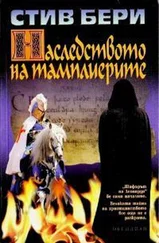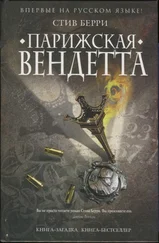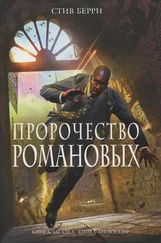“Any idea why all that Nazi stuff was in the hacienda?” he asked.
“It is not uncommon. Memorabilia like that turns up all the time. There are dealers who routinely peddle it. Our laws have long made it illegal, and we do enforce those. But the practice still occurs.”
Cotton recalled an Argentine news article from a few years ago where a secret room had been discovered in a Buenos Aires house, filled with hundreds of Nazi artifacts. The largest cache ever found anywhere.
“Who owns that hacienda?” he asked.
“A German émigré who has been dead twenty years. His family continues to possess the property, but they do not reside in Chile. One of many absentee owners.”
“Someone is using that location,” Cassiopeia said.
“I have already ordered surveillance of the grounds.”
Cotton was tired. The day had been long. Jet lag was taking a toll. And tomorrow wasn’t looking like it was going to be any better. “If we’re done, could you take us back to town? We need some sleep.”
“There is no need for that. You may stay here. I am returning to Santiago tonight by plane. I will leave the two carabineros who brought you here at your disposal. They will retrieve your vehicle from town.”
He appreciated the gesture.
“What of our weapons?” Cassiopeia asked.
An enjoyment dawned in Vergara’s cold brown eyes, then a charming smile formed on his lips. “Of course, they will be returned.”
Yet the voice carried a tinge of irritation.
Not much.
But enough.
CHAPTER TWENTY
THURSDAY, JUNE 13
7:40 A.M.
Cotton stepped from the shower and reached for a towel. He’d slept well, and the hot water had felt good. As usual, he shaved in the shower, a habit he developed in the navy that not only helped with nicks but saved time, as shaving ranked on his favorite to-do list just below a root canal.
The chalet was two stories, the upper floor containing two spacious bedrooms, though they’d only needed one. Vergara, true to his word, left last night and the two carabineros had slept downstairs. He’d sensed nothing unusual during the night and Vergara had returned their weapons, as promised. He wasn’t overly impressed with the deputy minister of investigations. Too many questions and not enough responses. He needed to contact Danny Daniels, so he wrapped the towel around his waist and headed toward the bedroom.
“Hey sailor, new in town?” Cassiopeia asked, tossing him a wink.
She was sitting on the edge of the bed waiting her turn for the bathroom.
“The shower is all yours,” he said, giving her a quick kiss.
She smiled and stood but, as he walked by, she managed to free the towel at his waist, which fell to the floor.
He shook his head and retrieved it.
She gave his bare chest an appraising glance and motioned at a jagged scar below his left pec, where the hair had refused to return. “Every time I see that, I wince a little. That had to hurt.”
He glanced at the old wound. “Took forty stitches.”
From his last assignment with the Magellan Billet, a supposedly cushy mission in Mexico City. Supposedly no danger. Court time. Witness interviews. Being a lawyer, instead of a field officer. But it had turned into chaos. Four people gunned down. He managed to kill three of the gunmen, but one shot him.
“How about I make it feel better later,” she said.
He grinned. “I’ll hold you to that.”
And she headed for the bathroom.
He found his laptop in the travel bag. Standard Magellan Billet issue and specially programmed for coded transmissions. Along with the phone and his watch, Stephanie had supplied him with the most current model. One of her rules required regular reports from agents, since she liked to know what her people were doing. And she particularly liked to know about problems before they became catastrophes. He didn’t work for her any longer, but he figured Danny Daniels wanted the same. So he opened a scrambled text to the number Daniels had provided and typed, Anybody home?
About time I heard from you. Eisenhuth told me that the Chilean police called last night for a reference.
Juan Vergara. Pushy fellow. Lots of questions, little information. Two of his carabineros escorted us at gunpoint to him. Not my idea of the Welcome Wagon. He turned on the charm and gave us a chalet to stay in for the night with a couple of babysitters. He then flew back to Santiago. You know anything about him?
I do now. People I called say he has a bit of an attitude, but is competent.
We found some confirmation of the information. Photos. They seem authentic. I’ll forward images to you.
Good to hear. Work with Vergara. We need local assistance. Use your charm, that warm and fuzzy everyone finds so irresistible. I’ll report all this to the chancellor. Keep in touch.
Yes, sir.
He deleted the scrambled text. He knew the information would not languish in a trash bin or on any server. It was gone forever, another feature programmed into the computer, per government specifications.
The shower was still running in the bathroom.
While he had a moment, he decided to study up a little. No such thing as too much information. Using a search engine, he located hits on Eva Braun. He’d read about her through the years, nothing more than a bit player to Hitler and the rest of his cronies. Then he found a page devoted to the woman who, in April 1945, became Mrs. Adolf Hitler:
Born in Munich in 1912 to a middle-class Catholic family, the daughter of a schoolteacher. She first met Hitler in the studio of his photographer friend, Heinrich Hoffmann, in 1929, describing him to her sister as “a gentleman of a certain age with a funny moustache and carrying a big felt hat.” She worked as Hoffmann’s office assistant, later becoming a photo laboratory worker, helping to process pictures of Hitler. Blond, fresh-faced, and athletic she was fond of skiing, mountain climbing, gymnastics, and dancing.
After the death of Geli Raubal, Hitler’s niece with whom he maintained a long love affair, Braun became his mistress, living in his Munich flat in spite of her father’s opposition. In 1935, after her abortive suicide attempt, Hitler brought her to a villa in a Munich suburb, near his home. In 1936 she moved to Berchtesgaden where she acted as Hitler’s hostess. She led an isolated life in the Alpine retreat and later in Berlin. Every effort was made to conceal her relationship with Hitler, since the Führer was supposedly devoted solely to the nation. Few Germans knew of her existence. Even Hitler’s closest associates were not certain of the nature of their relationship, since Hitler preferred to avoid suggestions of intimacy and was never wholly relaxed in her company. In fact, he would often degrade and belittle her intelligence. She spent most of her time exercising, brooding, reading cheap novelettes, watching romantic films, or concerning herself with her own appearance. But her loyalty to Hitler never wavered. After he survived the July 1944 assassination plot, she wrote an emotional letter, saying, “From our first meeting I swore to follow you anywhere, even unto death, I live only for your love.”
In April 1945 she joined Hitler in the Führerbunker, and eventually died with him as part of a suicide pact. She was heard to say, “Better that ten thousand others die than he be lost to Germany.” The rest of her family survived the war. Her mother, Franziska, who lived in an old farmhouse in Ruhpolding, Bavaria, died at the age of ninety-six, in January 1976.
He typed another request into the search engine and scanned three sites on Martin Bormann before he found a concise summary:
Читать дальше












